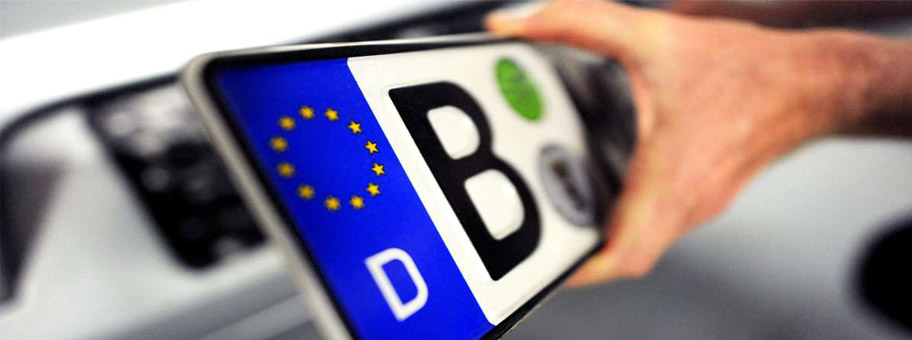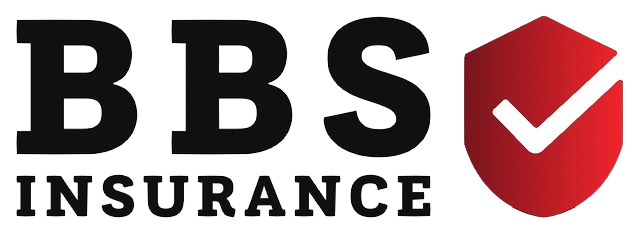ATTENTION! At 00:00 the MTIBU database will be updated. Please start concluding the contract after 00:00

17.01.2018
2927
Subscribe to our Telegram channel and watch the latest news first
Dali mine Original
Accidents involving "Euro plates" are perhaps as mythologized as the issue of foreign-registered cars in general. "What should I do if I've encountered a "Euro plate"? Where can I find out if it's insured? How will it pay me? Will they make me pay if I'm found at fault in an accident with a "Lithuanian" car?" — every Ukrainian driver has at least theoretically pondered these questions. Autonews.ua found the answers to these complex issues. Specialists from the Motor (Transport) Insurance Bureau of Ukraine (MTIBU) helped with this. An organization that unites Ukrainian and foreign insurers.
As with any other accident that can't be resolved with a "European protocol," if you're involved in an accident involving a "European license plate," you need to call the police. The police will first draw up a diagram of the accident, and second, they will identify the drivers of the vehicles with Ukrainian and European license plates, and document their involvement in the accident.
Having a "second party" is extremely important. The problem is that if there's no culprit, insurers won't even be able to register a claim.
Insurers say that most Ukrainians driving with "Euro license plates" insure their liability. However, there are some unfortunate exceptions. In any case, you can check whether the car involved in an accident has a "Euro license plate" on the MTIBU website.
To do this, go to the "Policy Registration Check" section (the red button in the upper right corner of the main page) and select the "Vehicle License Plate Check" section. For "Euro license plates," the search may not work, as it doesn't understand all the characters. In this case, the participant in the accident with a "Euro" license plate should be asked to show their insurance policy and search for it in this section using its number. If the system shows that the policy is valid (not expired, not forged), then you can apply for compensation to the insurance company that insured the foreign-registered vehicle.
If the "Euro" license plate is not insured in Ukraine, such a vehicle may have a "Green Card" policy from the country of origin. "However, experience shows that they have a "Green Card" for at best the first month after they crossed the border and arrived in Ukraine. The fact is that a "Green Card" policy is quite expensive, and they certainly won't buy one for a longer period abroad," The MTIBU explains to autonews.ua.
Upon arrival in Ukraine, a newly minted "Euro-license holder" has two options: either take out an OSAGO (compulsory motor third-party liability insurance) policy or drive without insurance. If the "Euro-license holder" hasn't taken out an insurance policy, the injured party must follow the standard procedure and apply to the MTIBU for compensation. But first, the driver with the "Euro-license holder" must be found guilty in court.
If a driver with a European license plate who doesn't have insurance is found guilty in court, they can either pay for the damages themselves, or the MTIBU will compensate them, after which they will file a lawsuit against the driver.
It looks like there will be complications. If such a driver with a European license plate and no insurance flees the scene of an accident, there's a chance the police won't be able to find them. "We don't have any database." Even if the victim remembered the car's license plate number, we'd, roughly speaking, write to Poland or Lithuania, and they'd tell us, "Yes, there is such a car, it's registered to the company 'Horns and Hooves,' or its insurance has expired and it's been deregistered. So, the culprit fleeing the scene of an accident is a problem for us," says the MTIBU press service.
However, the MTIBU admits that cases of "Europlate" cars fleeing the scene are quite rare. "We have a very specific practice in this matter. People contact us when there is a culprit. When there isn't, we can't even register the report. That's why we learn about such cases from the media. But you have to understand that such cases immediately become outrageous, they attract attention, so everyone thinks it's a very common practice. But in reality, it's not that common. Our drivers also flee the scene of accidents, and unfortunately, very often. This is especially true when the accident involves pedestrians and their lives and health are harmed," says the MTIBU.
Now let's consider the opposite scenario: the driver at fault in the accident is a car with Ukrainian license plates, and the vehicle damaged is a "European license plate." In this case, if the "Ukrainian" at fault has insurance, the owner of the "European license plate" should contact the insurance company and receive compensation.
However, to do this, they must provide a power of attorney from the ultimate owner (a citizen of Poland, Lithuania, or another country) confirming that the Ukrainian has been granted the right to use the vehicle and receive compensation, including insurance. If such a power of attorney is not available, it must be obtained from the foreigner: according to Ukrainian law, only the ultimate owner of the vehicle (in this case, the foreigner) has the right to receive compensation.
Insurers say that this is a problematic issue for Ukrainian "Europlate" owners, since many, when buying a foreign car abroad, don't consider the need for a power of attorney.
If the person at fault in the accident didn't have an insurance policy, then the injured party with the "Europlate" must also seek assistance from the MTIBU. However, in this case, they must also provide a power of attorney.
This seemingly naive question contains a rather non-obvious point. Simply having a European license plate isn't enough to enter Europe—you also need a valid Green Card. Without it, you won't be allowed to cross the border. The problem is that in Ukraine, insurance companies aren't allowed to issue Green Card policies for foreign cars. That is, they can only issue them to resident vehicles. And if a European license plate arrived, say, from Poland with a monthly Green Card (the cheapest one) and it expires, border guards aren't allowed to let that car leave the country. It becomes a travel ban.
In this case, a Ukrainian needs to obtain a Green Card policy in the country of origin. his car (Poland, Lithuania, or another country), or leave the car in the border zone, walk to the neighboring country, take out cross-border insurance there (or the equivalent of motor insurance in the "guest" country), return to Ukraine, show border guards that you already have insurance, and only then cross the border.
Source: Autonews.ua
Author: Andriy Dovgan














































